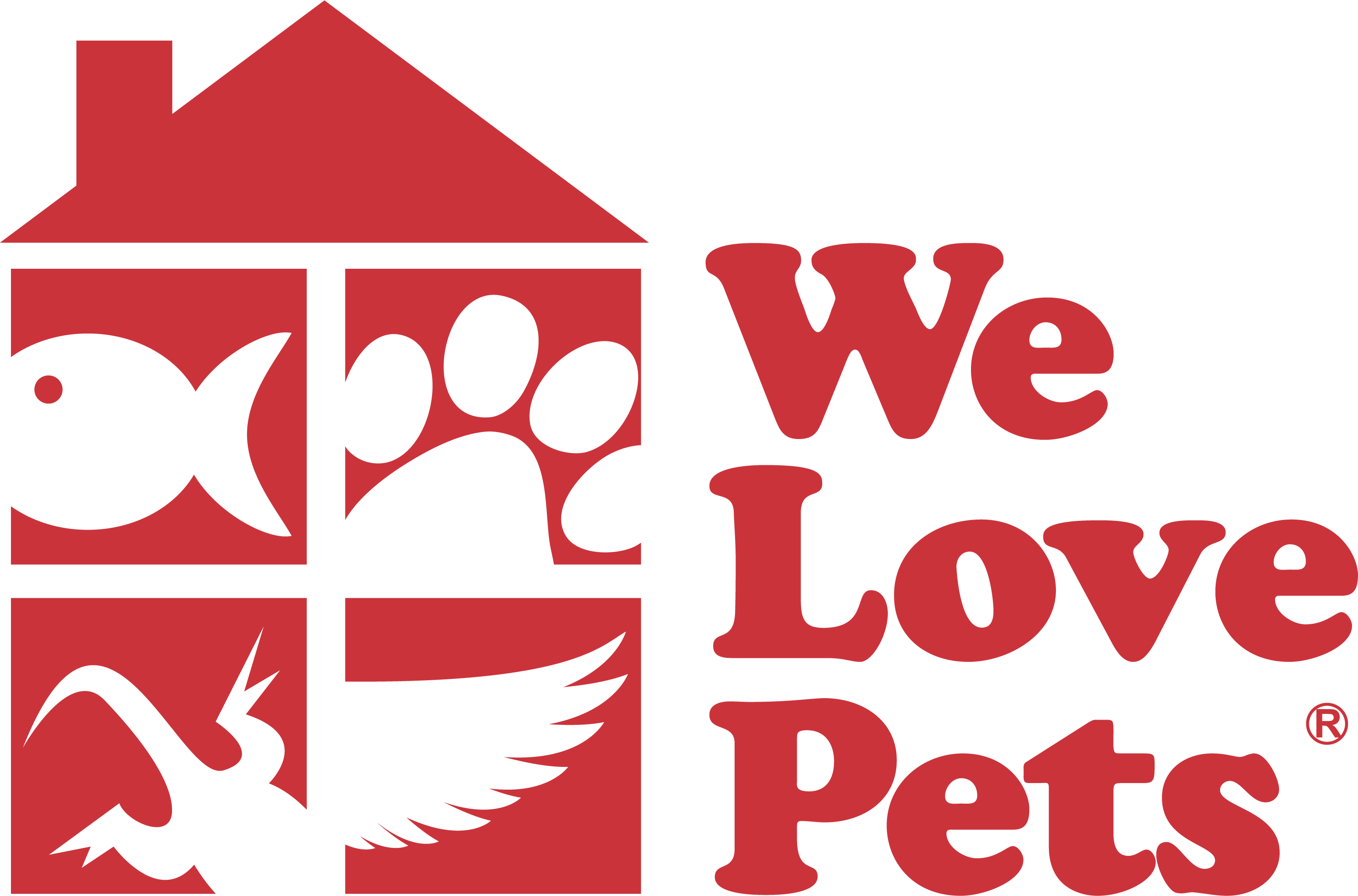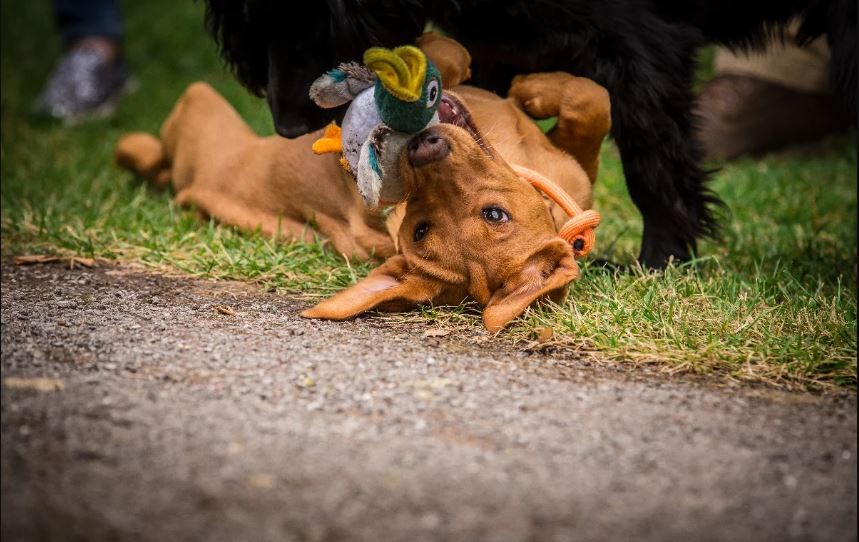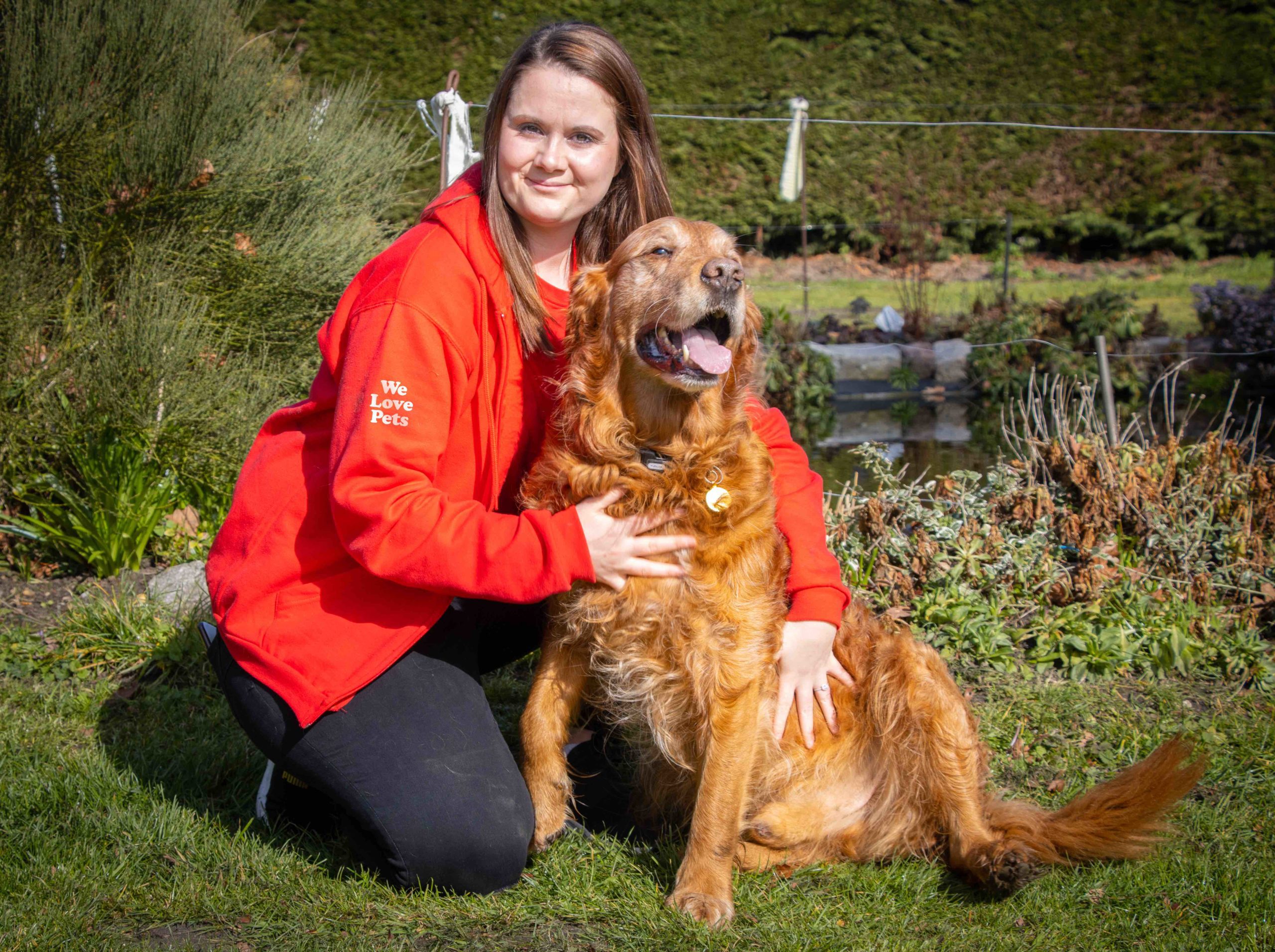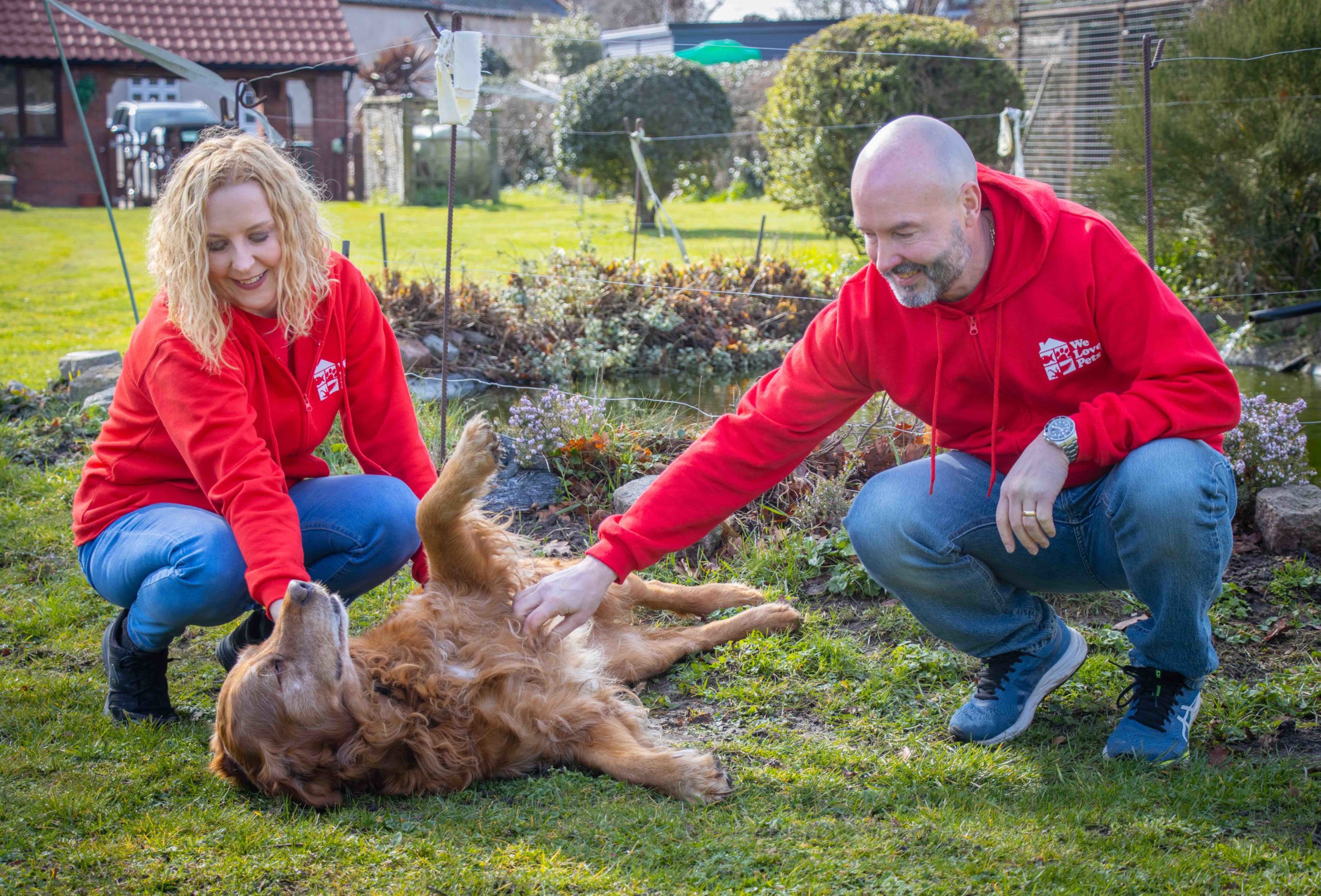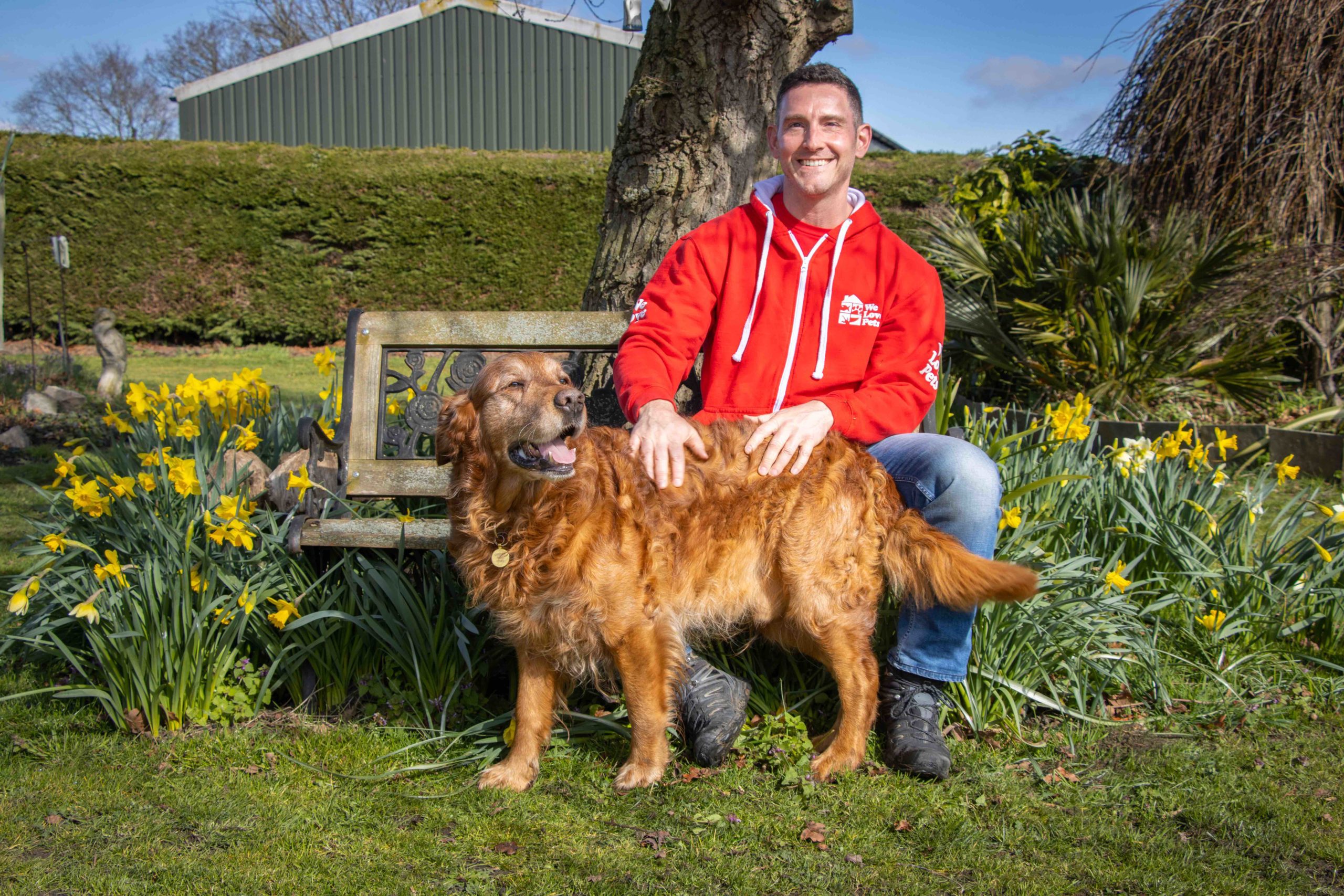APDT Advanced Dog Trainer and franchisee Amy Pearson, tells us all about socialising puppies – when is it best to do so, and what to do.
There is a lot of confusion around when to socialise your puppy. When is it safe to take them outside? When should they start to interact with other dogs? When are they developmentally ‘ready’?
As a general rule you should wait 10 days after your puppy’s had its second vaccination before you can start taking them out on normal dog walks, but this does not mean your puppy has to stay indoors!
8-14 weeks: Even without walks, there’s a lot you can do:
- Let your puppy in the garden (as long as it’s enclosed).
- Invite a friend’s vaccinated dog over to play with your puppy. You can start to socialise your puppy without the risks that come with meeting unvaccinated dogs.
- Attend puppy classes – good classes will check all puppies have had their first vaccinations before they are allowed to attend.
- Carry your puppy around to as many dog places as you can.
14+ weeks: When your puppy is ready for walks, don’t be tempted to go all out…
- Remember your puppy’s never been on the floor out there and there’s a lot to take in. Allow them to sniff and investigate their surroundings.
- Start slowly with 5 to 10 minute bursts three times a day and build it up as they get older.
- Always take treats on your walks. If you make sure you reward things you like, for example walking next to you, it’ll occur more often.
- Try sitting in the park and let your puppy explore around a small area, go to pet shops, walk around quiet car parks, past schools etc.
- Let your puppy meet people and dogs but do it on their terms, if they don’t want to makes friends with everyone its ok – just walk away- we certainly don’t like everyone we meet and dogs are no different.
Important things to remember:
Let your puppy see as much as you can but remember never pull your puppy towards something if they don’t want to go. The process of socialising your puppy should also be about building your relationship with them and not breaking their trust. You need to be your puppies safe place not the person that drags them towards something they find scary. If they don’t want to go near something, give them time and let them observe it from a distance.
Do not pick them up unless you absolutely have to, they will get more information from being on the ground and will be able to show you what they want to do with their feet. If they retreat that’s ok, Rome wasn’t built in a day and nor will your puppy’s confidence be.
If your puppy tries to move towards something inappropriate, be a “tree” – let the lead tighten but do not move. Let them look at whatever it is from where they are and when they are ready to go, move on. If they are startled by a noise, throw some treats on the floor, not only will it distract them but they will learn that surprises are not necessarily bad!
WLP vet nurse Chelsey Wheeler says:
“Generally when we meet a puppy for the first time at our clinic it is on or just after their first vaccine, so around the 8 to 10 week mark when maternal antibodies have decreased sufficiently. Their second vaccine is given 2 to 4 weeks later but can vary depending on the type of vaccines used, licensing and the individual practice protocols.
“We then recommend to socialise your puppy outside on walks 1 week after their second vaccine. Everyone really struggles with this time scale and it can be more depending on the individual recommendations of your vet clinic. It really seems like a long time to wait to start socialising your puppy but take it as a positive as there are a things your can do after the first vaccine to help your puppy gain confidence prior to going out on walks.
They can have visitors or visit households where the other dogs are fully vaccinated, many vet clinics and trainers will have socialisation or introductory classes, plan a puppy party with friends, start taking your puppy on short car journeys, walking them around the house and garden with their lead or harness on and many people will choose to carry them to the park or pub so they can get used to the sounds and smells while being safe and secure in their arms.
It is important to socialise your puppy, but we must ensure that everything we expose them to is done so in a way that keeps them safe and allows them time to adjust and feel comfortable.”
If you need puppy care but your puppy is too young for our regular walks, visit our puppy care page to find out how we can help you, or contact your local branch.
